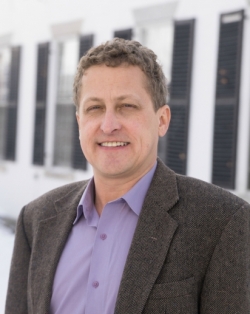Winter 2027
Application Deadline
Feb 1, 2026 1 Month
2 Weeks
1 Day

During winter term, the Dartmouth Dept. of Linguistics offers a foreign study program in Auckland, New Zealand (Aotearoa) and Rarotonga in the Cook Islands. The portion in Auckland is in conjunction with the Dartmouth Dept. of Anthropology FSP and includes classes in the Dept. of Māori Studies at the University of Auckland. Auckland is the largest city in New Zealand, with a culturally diverse population of 1.5 million people. The University of Auckland is an internationally recognized center for the study of Pacific archaeology, cultural anthropology, biological anthropology, and linguistics, and is a leading institution in the comparative study of Indigeneity.
For seven weeks in Auckland, students take classes on Māori language and culture and a course preparing students for linguistics field research taught by the Dartmouth Linguistics FSP faculty director. The time in Auckland includes field trips to Māori communities and significant historical sites on the North Island of New Zealand.
Students spend the final 3 weeks participating in a linguistics field research project led by the Linguistics FSP faculty director in Rarotonga studying Cook Islands Māori. The portion of the FSP in Rarotonga is hosted by the University of the South Pacific, Cook Islands campus. Students share a house together in Rarotonga.
About 10 students are selected for the program. Committed students will also submit an application to the University of Auckland.
For more information about applying for this program, see our webpage on How to Apply & our FAQs under section 2 (How to Apply: Application)
 David A. Peterson Associate Professor of Linguistics
David A. Peterson Associate Professor of Linguistics  Rolando Coto Solano Assistant Professor
Rolando Coto Solano Assistant Professor Curriculum
ANTH | 52 | 90:
Introduction to Māori Society
Prerequisites
LING | 1:
Introductory Linguistics
and one other linguistics course in the 20s.
Students begin the program living in University of Auckland campus housing; a short walk from the city- and campus centers. For the final 3 weeks, students share a house together in Rarotonga. Highlights of the program in Auckland typically include excursions to places relevant to Māori history and culture. In past terms this has included a visit to a Māori meetinghouse in a Māori community on Waiheke Island.
For more information, see the department website.
We encourage students to engage with their SAS advisors and program faculty/staff during the exploratory, pre-application phase to discuss how disability-related accommodations and access needs can be supported in an off-campus environment. If you currently have approved accommodations at Hanover, SAS will review them to determine which can be provided at your off-campus location and what alternatives may be needed. On-campus and off-campus accommodations may differ depending on each program location's resources and accessibility features. We recommend beginning this discussion with SAS as soon as you are accepted and no later than at least one whole quarter before your program start date.
For next steps, review the Off-Campus Program Accommodations page on the SAS website.
The fees charged by the College for a Dartmouth-sponsored off-campus term of study include regular tuition charges for a term at Dartmouth, service fees, as well as the specific costs established for each off-campus study locale. In many programs, the room and board costs tend to be higher than for a term in Hanover. You can view a budget sheet for each program by clicking on the appropriate term under "Financing Your Program". The cost of transportation to and from the site is the responsibility of the student.
In order that all qualified Dartmouth undergraduate students may have the opportunity to take part in off-campus programs, the College endeavors to adjust its normal financial aid awards for students already receiving aid. Tuition and expected family contribution for Dartmouth's off-campus programs are the same as for an on-campus term.
All costs, including airfare and spending money, are considered when determining the cost of an off-campus program. Any costs more than a typical term in Hanover are met with additional Dartmouth Scholarship Funds. If you have a work expectation for the term, this will be replaced by scholarship funding for programs that span the entire term.
Students are responsible for purchasing their own plane tickets and, in many cases, meals. Often, families find that they owe less for billable items for study away terms but will instead use more of their expected family contribution towards indirect costs such as the flight and meals. For help sorting out who pays what and how, contacting the Financial Aid office is often advisable.
Financing your program | Financial Aid | Scholarships | Budgeting & Costs